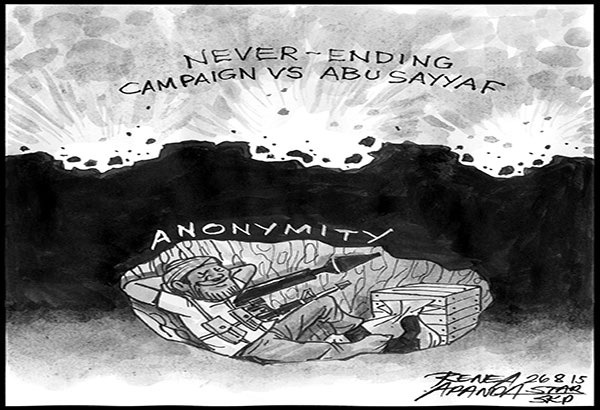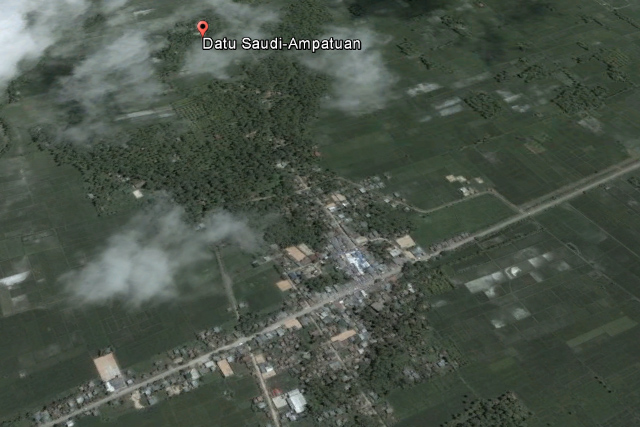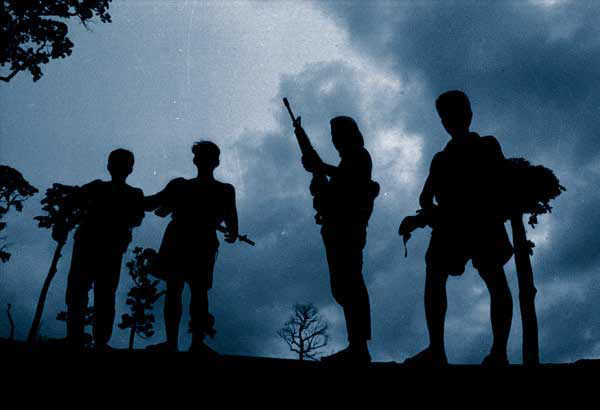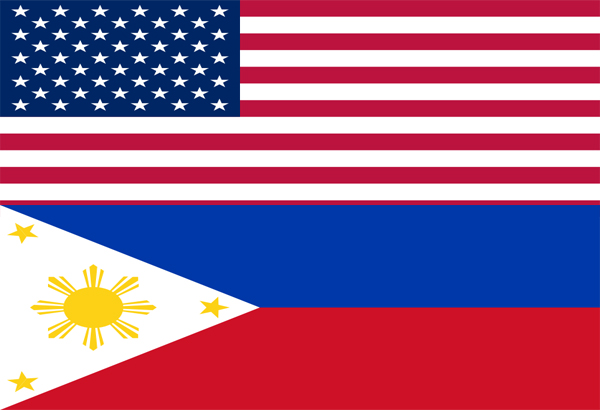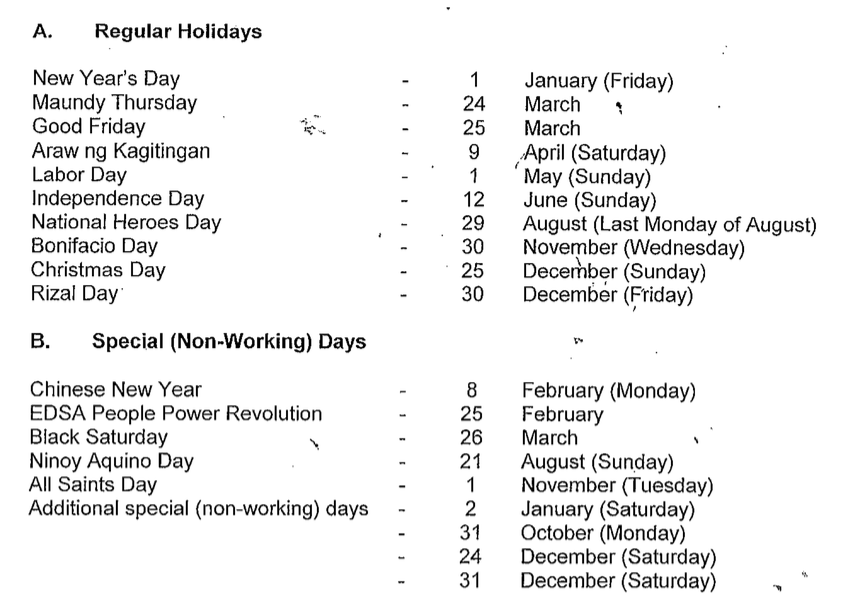Posted to the MILF Website (Aug 26):
JICA, BTC, MILF turnover Quick Impact Project to residents of Upi, Maguindanao

A
two-classroom school building financed through the Quick Impact Project (QIP)
under the Comprehensive Capacity Development Project for the Bangsamoro
(CCDP-B) was formally turned-over to residents and school administration of
Kibleg Elementary School, Barangay Kibleg, Upi, Maguindanao on Monday, August
24.
Dr
Mohammad Yacob, Executive Director of Bangsamoro Development Agency (BDA)
explained that the QIP’s for conflict affected-areas in Mindanao was initiated
by JICA President Dr Akihiko Tanaka and MILF Chairman Alhadj Murad Ebrahim
after the signing of Comprehensive Agreement on the Bangsamoro (CAB) in
Malacańan, Palace in March 2014.
The BDA and
other stakeholders have contributed in one way or the other to the successful
implementation of the project.
Tanaka
explained why JICA and MILF chose QIPs. He said “Both JICA and our MILF
counterpart believe that QIP would be a great way for Bangsamoro communities to
feel the peace dividends and for people to remain hopeful about the benefits of
the peace process and continue to support it, they need to be assured that the
CAB will bring improvements in their lives.”
Tanaka said
“The QIP is actually a small scale local project but implemented in a short
period of time that can address urgent community needs.”
The QIP is
implemented in 20 sites; in Maguindanao, Cotabato, Lanao del Sur and del Norte,
Basilan, Sulu, Tawi-Tawi, Zamboanga Sibugay, Sarangani, Sultan Kudarat, Compostela Valley, and Davao Oriental. “These
communities are chosen because they are among the most affected by conflict,”
he pointed out.
Quick
impact project he said is just one element of their broader projects in the
region. The construction of school and multipurpose buildings and solar dryers
with ware houses in the conflict affected-communities started last March 2015.
In 2013 the
Bangsamoro Transition Commission (BTC) and JICA have started the CCDP-B. There
are cooperation activities under the CCDP-B like assistance public consultation
for drafting a Bangsamoro Basic Law, supporting the drafting of Bangsamoro
Development Plan (BDP), human resource development, capacity building seminars
in Tokyo and other parts of Japan to
acquire more learnings on political system and governance, and the
implementation of QIPs.
Tanaka also
recalled the breakdown of the Memorandum of Agreement on Ancestral Domain
(MOA-AD) that induced frustrations of some MILF commanders which led to the
2008 war against government troops that displaced half-a-million people in
Mindanao; and recently the January 25 Mamasapano incident, and the prolonged
deliberations on the Bangsamor Basic Law (BBL) in the lower and upper houses of
congress that may affect the 17-year peace negotiations.
However, he
said, “The Japanese government and JICA remained steadfast in their commitment in
supporting the peace process in Mindanao”.
Tanaka also
reminded the parents and teachers on the importance of education. “We all know
the importance of good education. In addition to qualified and passionate
teacher; studying in an environment that is conducive to learning is the key to
a quality education. With these new classrooms, students in the community have
access to basic education,” he said.
He asked
students in a Filipino language, “Masaya ba kayo sa bagong classroom?” (Are you
happy with these new classrooms”) and the crowd said “Opo!” (Yes!). And he
asked again, “Nag-aaral ba kayo ng mabuti?” (Are you studying hard?). The
students replied “opo” means yes and Dr Tanaka said “very good.”
Tanaka
advised the pupils of Kibleg
Elementary School to
strive harder in their studies. He said “You’re all have a very bright future
ahead of you, please study hard and listen to your teachers, your parents
always tell you that education is one of the greatest things that they can give
you. I fully agree with them, education is something that no one else can take
away from you. Education will pave the way for your personal growth and help
you achieve a brighter future.
“Let us all
work together for better future and lasting peace in the Bangsamoro,” he appealed
to his audience.
Tanaka
promised that JICA will remain true to its commitment of promoting peace and to
further strengthen its support in Mindanao.
The first
visit of Tanaka in Mindanao was held in May
2012 and this is his first trip abroad as JICA new President. The JICA
President by then was fully committed to support the peace process and
socio-economic development of Mindanao.
On the
other hand, BTC Chairman Mohagher Iqbal was joined by his fellow Commissioners
Ebrahim Ali and Melanio Ulama, a Teduray Timuay (Datu) and a native of Upi.
Iqbal
thanked the JICA and the Japanese government especially JICA President’s
commitment for attending and leading the turnover ceremony.
He
appreciated the role of Japan
through the International Monitoring Team and the International Contact Group’s
active role in the government-MILF peace process.
“Japan have outstanding role in the GPH-MILF
peace process…Japan has been
journeying with us in terms of socio-economic development in the future
Bangsamoro entity, and into the entire Mindanao.
Japan
is here to help our people,” Iqbal said.
Iqbal told
the audience that BTC’s Socio-Economic Office has received information that the
school building built in Kibleg is the best constructed building among the 20
projects all-over Mindanao.
He
congratulates the constructor (Angkat Const. and Supplies), the school
principal and members of faculty, pupils and parents.
“Japan has been
investing too much even without the peace process succeeding, even without
seeing that peace process is really successful. Japan is already with us investing
so much money for our people,” he added.
He was
emphasizing that Japan
is investing even without expecting something. “Maybe if there is peace Mindanao, then natural that Japan will become our partner
in developing our area in the Bangsamoro,” said Iqbal.
Talking
about BBL, he said “We will not know what will happen to the Bangsamoro Law…there
is hope that BBL will be delivered but there’s no assurance. We need to work
hard at least we can make a difference so that BBL will be passed.”
Upi Mayor
Ramon Piang Sr said in his closing remarks, “Thank you Japan for
helping these small children. We believe that it is a manifestation that Japan
through JICA trust the MILF because this quick impact project is a confidence
building program of the MILF and people of Japan.”
“The people
of Upi, Mr Chairman (Iqbal) and of course Mr President (Tanaka) are behind the
MILF in its quest for peace in this part of Central
Mindanao. We sympathize with the MILF and pray with them that
government and the legislature of this country will be able to think faster and
see the impact of peace in Mindanao,” he stressed.
Piang said
that they have suffered from violence in the past and he doesn’t like to repeat
this negative impact of war to his constituents especially the students.
He also
said that aside from this project, JICA and the Government of Japan gave them
other infrastructure projects and capacity building programs which are
beneficial to the growth of Upi.
Other
highlights of the program were cutting of ribbon and unveiling of the
stakeholders’ memorial plate with Japan and Philippine Flags, Logo of
JICA and MILF, J-BIRD, BTC and BDA that says: “Quick Impact Project Initiative
by MILF Chairman Alhadj Murad Ebrahim and JICA President Akihiko Tanaka under
the Comprehensive Capacity Development Project for the Bangsamoro”.
It is
expected that the president of JICA will also turn over other quick impact
projects located in 20 sites in Mindanao.
http://www.luwaran.com/index.php/new/item/543-jica-btc-milf-turnover-quick-impact-project-to-residents-of-upi-maguindanao
